
Pleven: The Heartbeat of Bulgarian History and Culture
Pleven, a charming city in northern Bulgaria, is a treasure trove of history and culture. Known for its pivotal role in the Russo-Turkish War of 1877-1878, Pleven is home to the Pleven Panorama, a unique museum that commemorates this historic event. The city offers a perfect blend of modernity and tradition, with wide boulevards, lush parks, and historic landmarks. The city center boasts the impressive Pleven Epopee 1877, a panoramic monument that provides an immersive experience of the Siege of Pleven. Nearby, you can visit the Pleven Regional Historical Museum, which houses artifacts from various periods of Bulgarian history. For art enthusiasts, the Svetlin Rusev Donative Exhibition is a must-see, featuring works by renowned Bulgarian artists. Nature lovers will find solace in the beautiful Kaylaka Park, a sprawling green space offering hiking trails, picnic spots, and serene lakes. The park is also home to the Pleven Zoo, making it a great spot for families. Pleven's culinary scene is equally enticing, with local restaurants serving traditional Bulgarian dishes like banitsa and kavarma. Whether you're a history buff, nature lover, or foodie, Pleven has something to offer everyone.
Local tips in Pleven
- Visit the Pleven Panorama early in the morning to avoid crowds.
- Try local dishes like banitsa and kavarma at family-owned restaurants.
- Wear comfortable shoes for exploring Kaylaka Park's extensive trails.
- Don't miss the Svetlin Rusev Donative Exhibition for a taste of Bulgarian art.
- Check the local calendar for traditional festivals and events during your visit.
Pleven: The Heartbeat of Bulgarian History and Culture
Pleven, a charming city in northern Bulgaria, is a treasure trove of history and culture. Known for its pivotal role in the Russo-Turkish War of 1877-1878, Pleven is home to the Pleven Panorama, a unique museum that commemorates this historic event. The city offers a perfect blend of modernity and tradition, with wide boulevards, lush parks, and historic landmarks. The city center boasts the impressive Pleven Epopee 1877, a panoramic monument that provides an immersive experience of the Siege of Pleven. Nearby, you can visit the Pleven Regional Historical Museum, which houses artifacts from various periods of Bulgarian history. For art enthusiasts, the Svetlin Rusev Donative Exhibition is a must-see, featuring works by renowned Bulgarian artists. Nature lovers will find solace in the beautiful Kaylaka Park, a sprawling green space offering hiking trails, picnic spots, and serene lakes. The park is also home to the Pleven Zoo, making it a great spot for families. Pleven's culinary scene is equally enticing, with local restaurants serving traditional Bulgarian dishes like banitsa and kavarma. Whether you're a history buff, nature lover, or foodie, Pleven has something to offer everyone.
When is the best time to go to Pleven?
Iconic landmarks you can’t miss
Monument of Freedom, Saint Nicholas peak
Explore the Monument of Freedom at Saint Nicholas Peak, a symbol of Bulgaria's rich history, offering breathtaking views and a profound connection to the past.
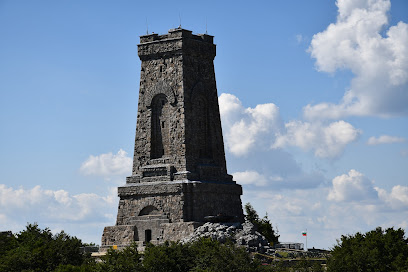
Pleven Panorama
Explore the Pleven Panorama, a captivating museum that immerses you in Bulgaria's heroic history and the monumental Siege of Pleven.
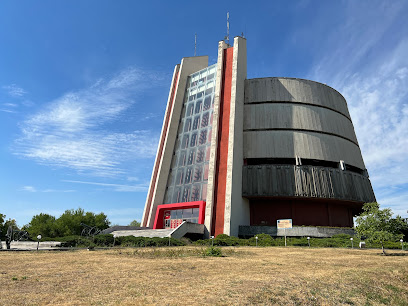
Skobelev Park
Discover the serene beauty of Skobelev Park, a lush urban oasis in Pleven, perfect for leisurely strolls and cultural exploration.
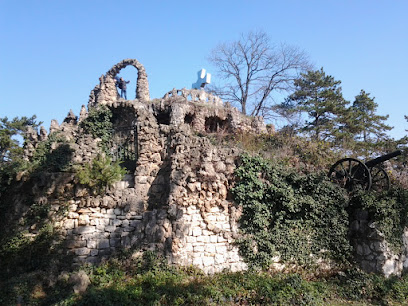
Monument of Mother Bulgaria
Explore the Monument of Mother Bulgaria in Veliko Tarnovo, a stunning tribute to the nation's history and a perfect spot for breathtaking views.
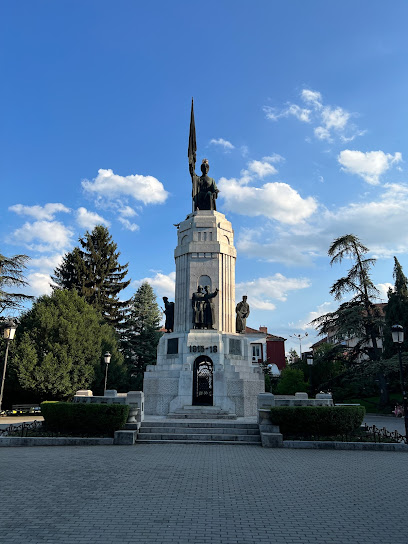
Pleven Water Cascades and Fountains
Experience the breathtaking beauty of Pleven Water Cascades and Fountains, a serene park with stunning waterfalls and vibrant floral displays in Bulgaria.
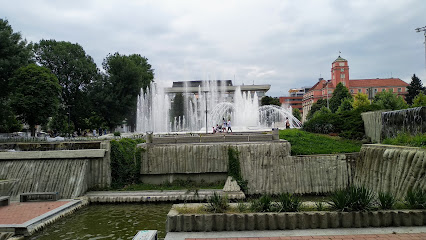
Kaylaka Park
Explore the serene beauty of Kaylaka Park, a lush green haven near Pleven, perfect for outdoor activities and peaceful retreats.
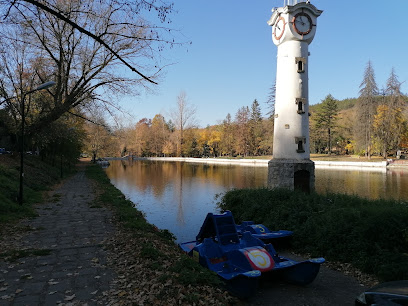
Revue - Coffee and Food
Experience Pleven's culinary heart at Revue - Coffee and Food, where delicious grilled cuisine meets a cozy and inviting atmosphere. Open daily!
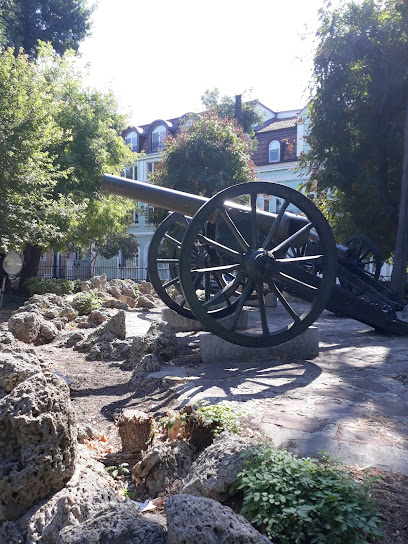
Regional Historical Museum Pleven
Explore Pleven's past: Archaeology, ethnography, and history come alive in this cultural treasure trove.
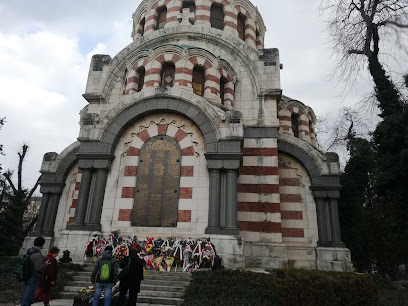
Monuments Park
Discover the historical charm and natural beauty of Monuments Park, a peaceful retreat in Svishtov perfect for relaxation and cultural exploration.
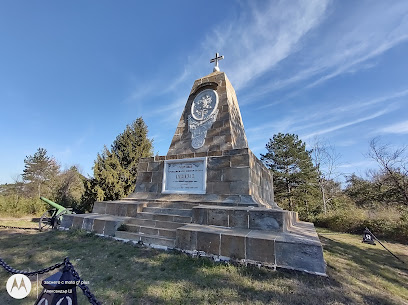
Pinch of love
Experience authentic Bulgarian cuisine with a modern twist at Pinch of Love, a culinary gem in the heart of Pleven, Bulgaria.
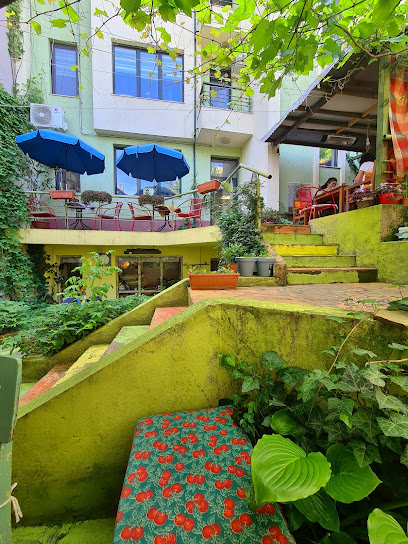
Pleven Zoo
Discover diverse wildlife in a natural setting at Pleven Zoo, nestled within the beautiful Kaylaka Park – an unforgettable experience for all ages!
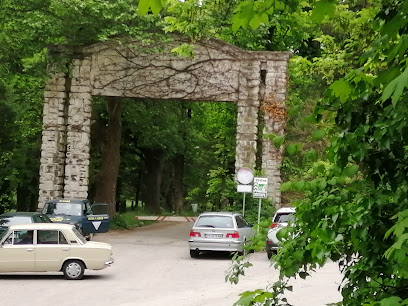
Hotel Villa Kaylaka
Escape to Hotel Villa Kaylaka in Pleven's Kaylaka Park: Comfort, nature, and relaxation await in Bulgaria's hidden gem.
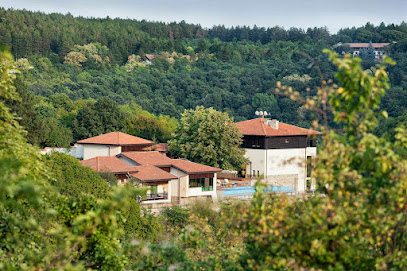
МБАЛ Сърце и Мозък
Experience Bulgaria's healthcare landscape at MBAL Sŭrce i Mozŭk in Pleven, where modern medicine meets compassionate care in a vibrant setting.
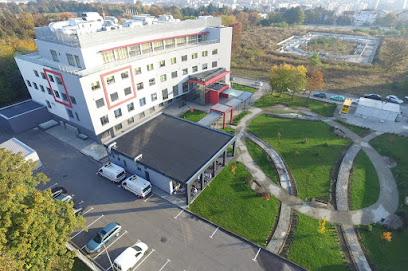
House Museum Tsar Liberator Alexander II
Explore the legacy of Tsar Alexander II at the House Museum in Pleven, where history comes alive through captivating exhibits and engaging stories.
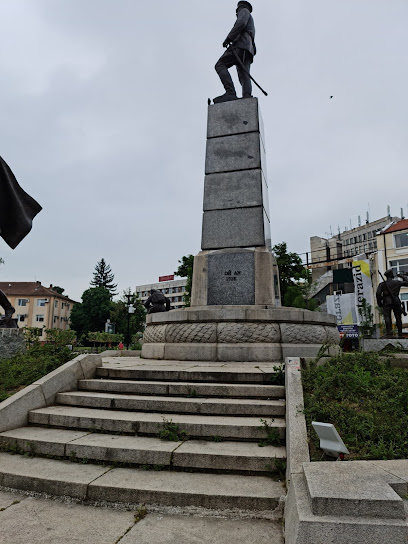
Hotel Orbita Palace
Escape to Hotel Orbita Palace in Pleven's Kailaka Park: Nature, comfort, and relaxation await in this scenic Bulgarian retreat.

Unmissable attractions to see
Covered Bridge
Experience the beauty and history of Bulgaria at the Covered Bridge in Lovech, a unique tourist attraction that captivates every visitor.
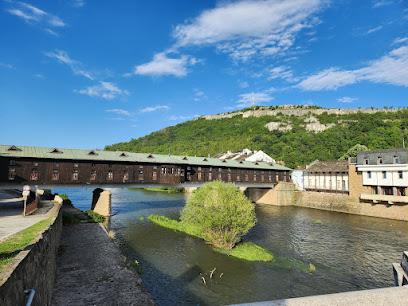
Devetashka Cave
Explore Bulgaria's Devetashka Cave: A prehistoric dwelling with stunning natural beauty and rich biodiversity, offering a unique glimpse into the past.
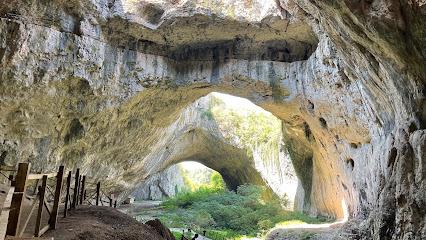
Pleven Panorama
Discover the rich history of Bulgaria at Pleven Panorama, an immersive museum dedicated to the Siege of Pleven, surrounded by serene Skobelev Park.
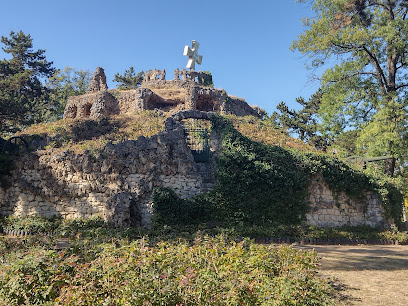
Skobelev Park
Explore the lush landscapes and historical treasures of Skobelev Park in Pleven, a perfect retreat for nature lovers and history enthusiasts alike.
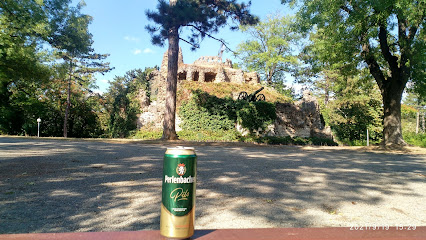
City Garden
Explore the serene beauty of City Garden in Pleven, a perfect blend of nature and culture in the heart of Bulgaria.
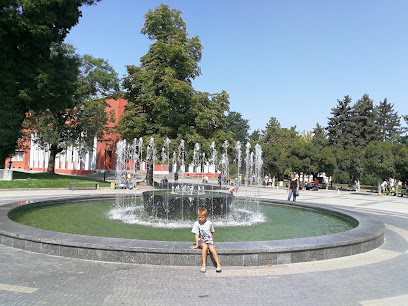
Pleven Water Cascades and Fountains
Explore the enchanting Pleven Water Cascades and Fountains, a stunning park filled with mesmerizing water features and vibrant gardens in Pleven, Bulgaria.
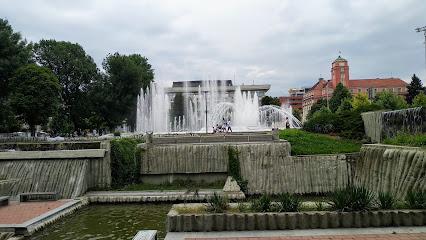
Kaylaka Park
Explore Kaylaka Park, a natural haven near Pleven, Bulgaria, renowned for its breathtaking landscapes, rich history, and outdoor adventures.
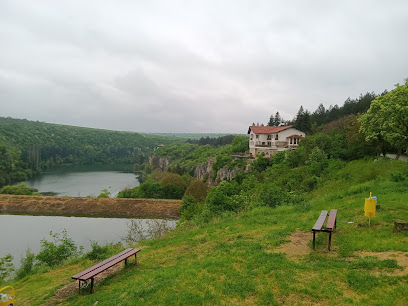
Regional Historical Museum Pleven
Explore Bulgaria's rich past at the Regional Historical Museum Pleven, showcasing artifacts from ancient times to the modern era.
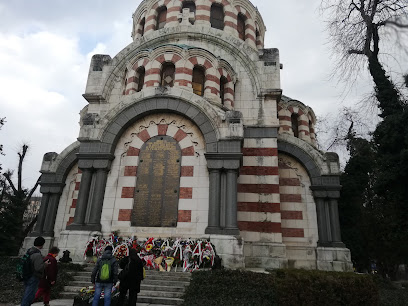
Pleven Zoo
Experience the beauty of wildlife at Pleven Zoo in Kaylaka Park, where adventure meets education amidst stunning natural surroundings.
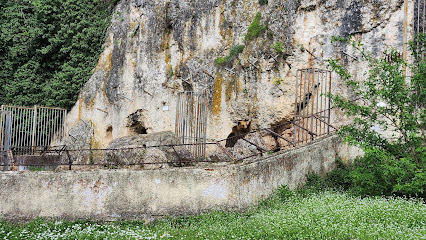
Геопарк Искър-Панега
Explore the breathtaking landscapes and rich biodiversity of Iskar-Panega Geopark in Karlukovo, Bulgaria's natural treasure.
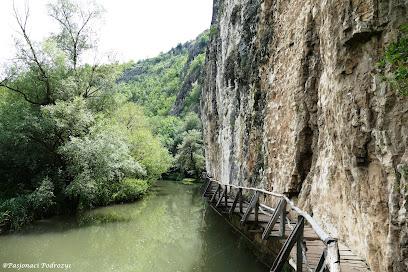
House Museum Tsar Liberator Alexander II
Explore the legacy of Tsar Liberator Alexander II at this captivating museum in Pleven, where Bulgaria's history comes to life through engaging exhibits and artifacts.
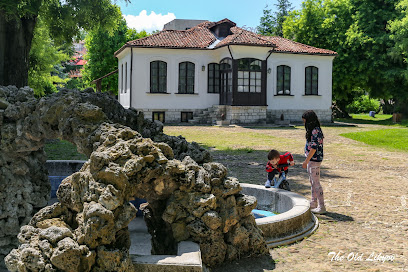
Wine museum
Explore the rich heritage of Bulgaria's wine industry at the Wine Museum, where history, tradition, and delightful tastings await every visitor.
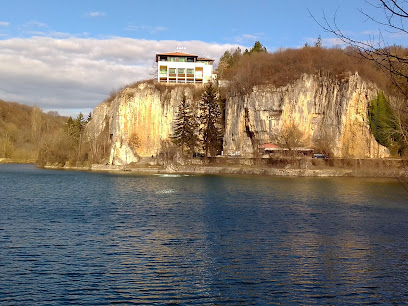
Ферма/ботаническа градина
Explore Pleven's Botanical Garden, a tranquil aquatic center and exhibition hub showcasing diverse plant life and serene landscapes for nature lovers.
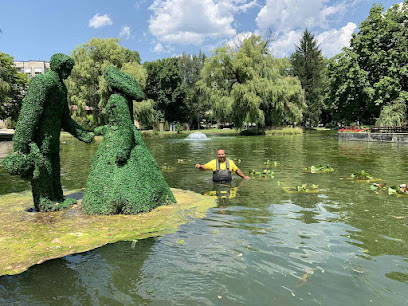
Фонтан в Гаровата градина
Find serenity at Pleven's Garova Gradina Fountain, a refreshing escape in a lush city park, perfect for relaxation and leisurely moments.
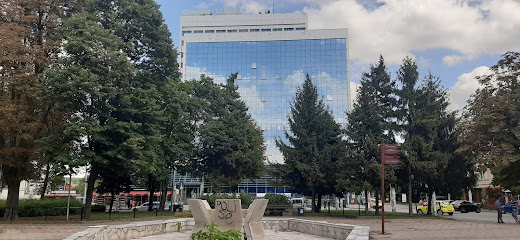
Градина „Девети квартал“
Discover tranquility and natural beauty at Gradina 'Deveti kvartal' in Pleven, a perfect retreat for tourists seeking relaxation and local culture.
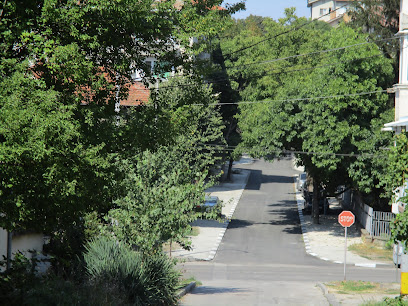
Essential places to dine
Life Restaurant & sushi
Experience exquisite sushi and delightful pizzas at Life Restaurant & Sushi, Pleven's culinary gem offering local flavors in a vibrant atmosphere.
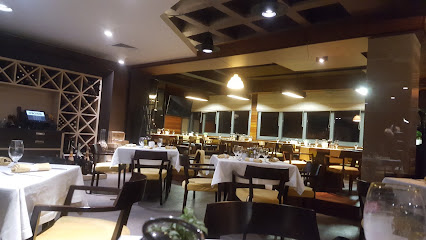
Дежа Вю Пица & Ресторант
Discover the flavors of Pleven at Deja Vu Pizza & Restaurant - where every bite is a taste of Italy combined with local sweetness.
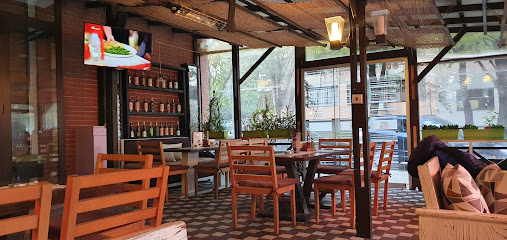
Canape Food # Club
Experience culinary excellence at Canape Food # Club in Pleven – where traditional flavors meet modern cuisine in a vibrant setting.
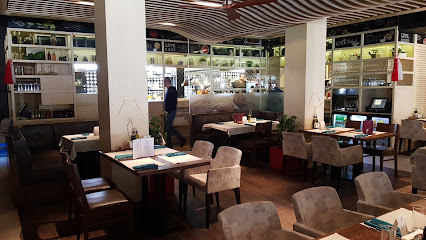
Canape Food Strip #Club
Experience the vibrant culinary scene at Canape Food Strip #Club in Pleven, offering diverse flavors and warm hospitality in a lively atmosphere.
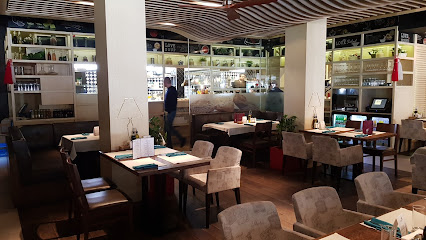
Pizza Napoli
Experience authentic Italian cuisine at Pizza Napoli in Pleven – where every slice is crafted with love and tradition.
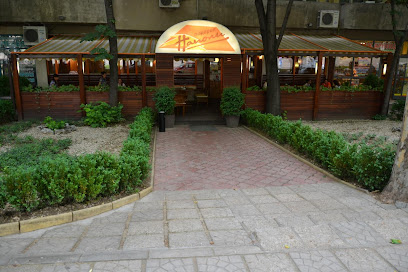
Tempo Pizza
Discover the authentic taste of Italy at Tempo Pizza in Pleven – where every slice tells a delicious story.
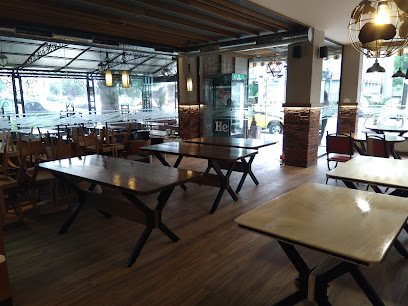
ДОРИ кафе, храна & игри
Experience the vibrant flavors and fun atmosphere at DORY Café in Pleven – where delicious food meets entertainment!
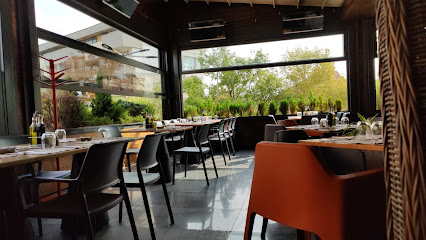
Pizzeria Cantonata
Experience authentic Italian pizza at Pizzeria Cantonata in Pleven - where tradition meets flavor for an unforgettable dining experience.
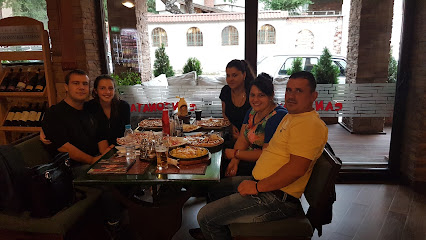
Revue - Coffee and Food
Discover Revue - Coffee and Food: A Grill Haven in Pleven Offering Delicious Meals and Cozy Atmosphere Perfect for Tourists.
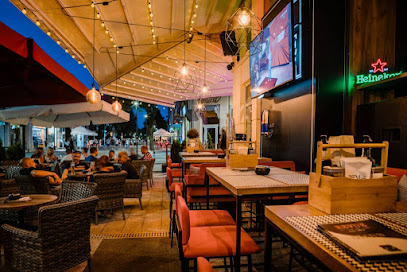
Resto Momento
Discover the heart of Pleven's culinary scene at Resto Momento, where authentic Bulgarian flavors meet modern dining.
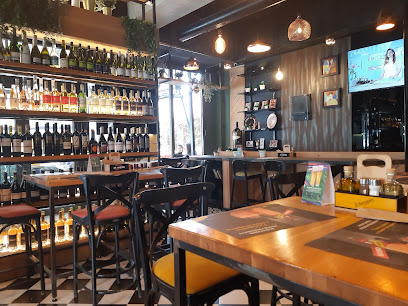
Pinch of love
Experience authentic Bulgarian cuisine at Pinch of Love in Pleven - where every dish tells a story.
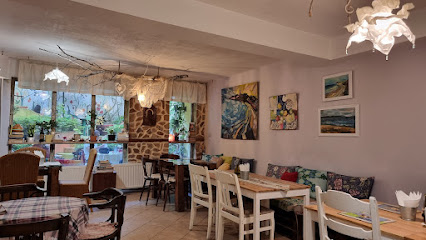
Ресторант Караджейката
Discover Restaurant Karadjeikata: A serene dining experience nestled in Pleven's Kaylaka Park with delicious local cuisine and stunning views.
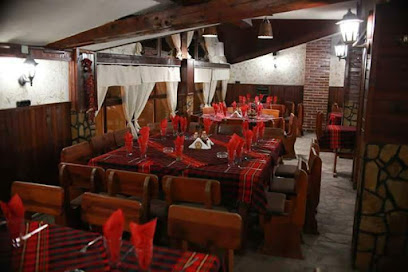
Restaurant Budapest
Discover the culinary treasures of Bulgaria at Restaurant Budapest in Pleven - where tradition meets modern cuisine.
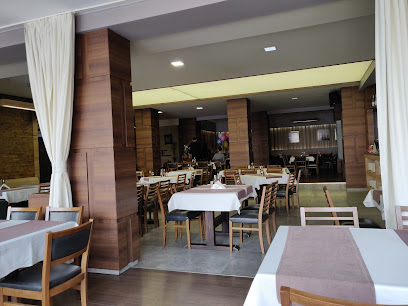
Restaurant Paraklisa
Discover the authentic taste of Bulgarian cuisine at Restaurant Paraklisa in Pleven – where every meal is a celebration of flavor.
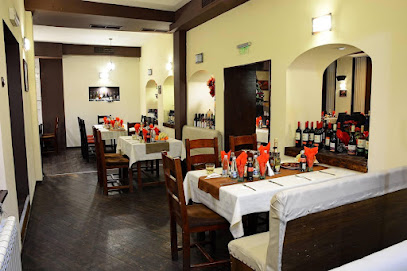
Пицария Sasso pizza & pasta
Experience authentic Italian cuisine at Sasso Pizza & Pasta in Pleven – where every bite is crafted with passion and tradition.
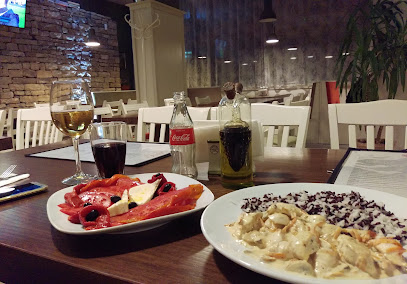
Markets, malls and hidden boutiques
Panorama Mall
Discover a shopping paradise at Panorama Mall, Pleven, featuring diverse shops, dining options, and entertainment for the whole family.
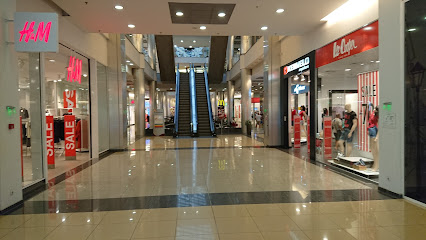
Central Mall Pleven
Discover a vibrant shopping paradise at Central Mall Pleven, where local culture meets modern retail therapy in the heart of Bulgaria.
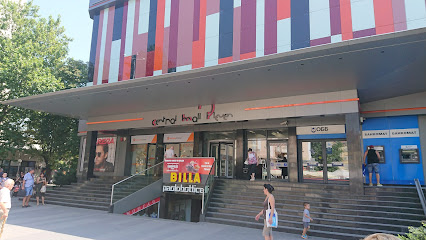
Mr.Bricolage Pleven
Explore Mr. Bricolage in Pleven for all your home improvement, gardening, and DIY needs with expert advice and quality products at competitive prices.
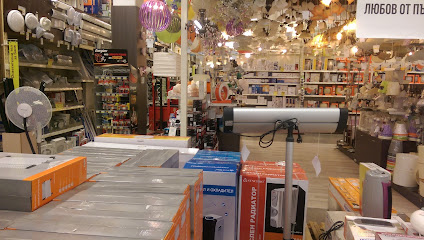
JYSK Pleven
Explore JYSK Pleven for stylish and affordable furniture, transforming your home with quality pieces in Pleven.
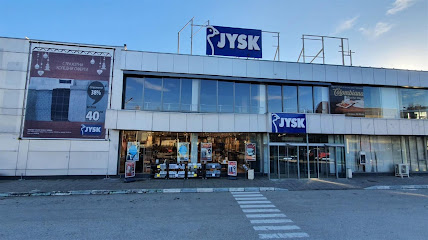
Shopping center Maxi
Explore Shopping Center Maxi in Pleven for a diverse shopping experience with local and international brands, dining, and entertainment options.
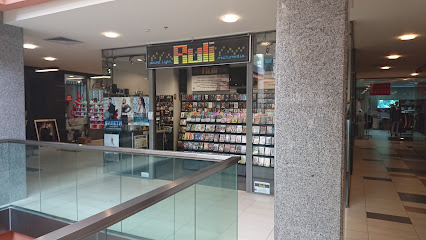
Книжарница Сиела - Плевен
Explore Ciela Bookstore in Pleven: A Literary Haven with a Rich Selection of Bulgarian and International Literature.
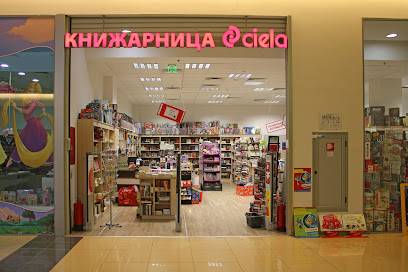
LC Waikiki
Discover affordable fashion at LC Waikiki in Pleven, where style meets comfort for the whole family.
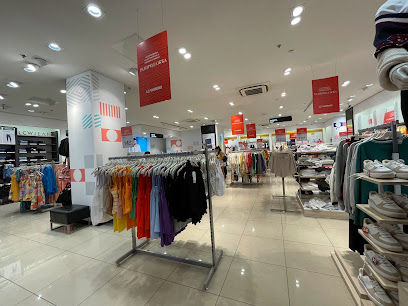
ZORA - PLEVEN
Explore ZORA in Pleven for the best selection of modern home appliances and electronics, perfect for every tourist's needs.
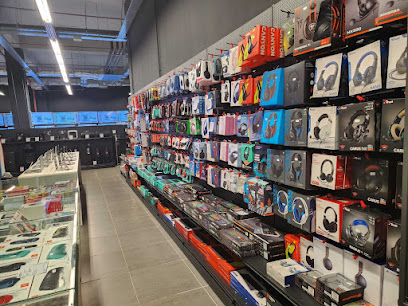
«Березка» гастрономия и кулинария
Experience the essence of Bulgarian cuisine at 'Березка', a culinary haven in Pleven celebrating local flavors and traditions.
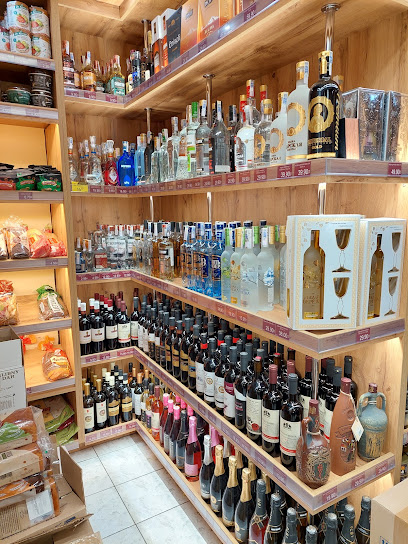
MOVI - Стара Главна
Explore MOVI - Стара Главна in Pleven for a wide selection of home goods, pet supplies, and seasonal items, all in a vibrant shopping atmosphere.
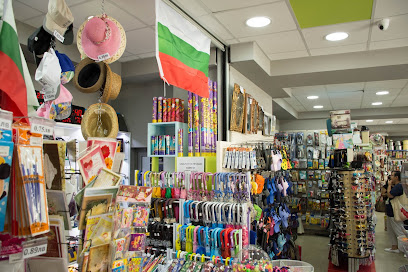
Humana second hand
Explore Pleven's Humana Second Hand Store for unique fashion finds and sustainable shopping experiences in a charming atmosphere.
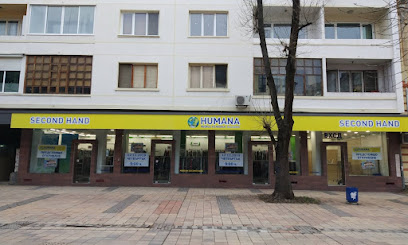
НИКСИ ЕООД
Discover quality small engine repair services in Pleven at НИКСИ ЕООД, where expert assistance meets a friendly atmosphere for all your maintenance needs.

DAP&Vape
Explore Pleven's DAP&Vape for premium vaporizers, cigars, hookahs, and liquors in a vibrant setting that caters to all enthusiasts.
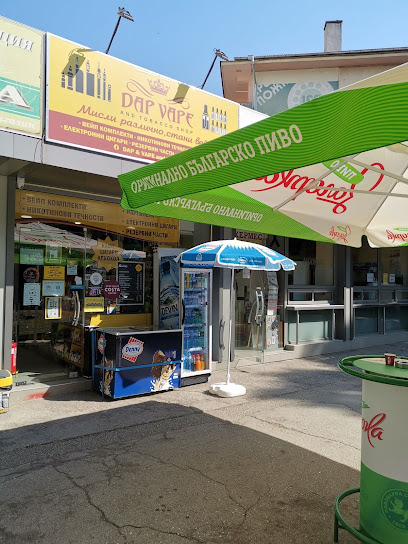
Sport Vision Pleven
Explore Sport Vision Pleven for top-notch sporting goods and apparel in Bulgaria, catering to athletes and enthusiasts of all levels.
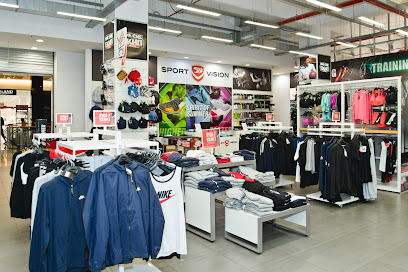
Idea Hobby
Explore your creativity at Idea Hobby, Pleven's premier craft store, where inspiration and quality crafting supplies await every enthusiast.
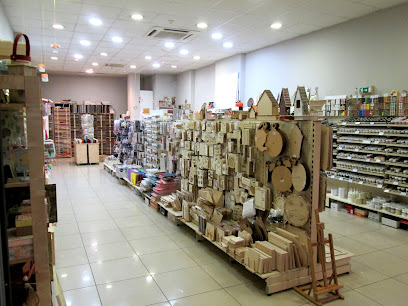
Essential bars & hidden hideouts
Canape Food Strip #Club
Experience the vibrant flavors of Canape Food Strip #Club in Pleven, where culinary excellence meets a lively atmosphere.
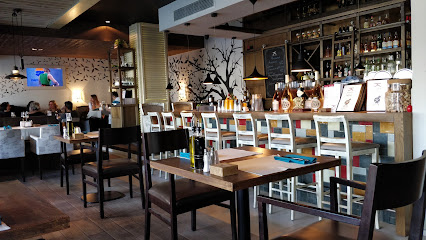
Revue - Coffee and Food
Experience the best of Pleven's grill cuisine at Revue, where flavor meets comfort in a cozy atmosphere.
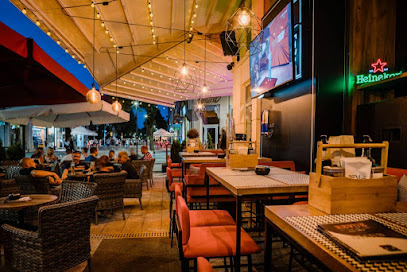
Momento bar & pizza
Discover the vibrant flavors of Pleven at Momento Bar & Pizza, where artisanal pizzas and a lively atmosphere await your taste buds.
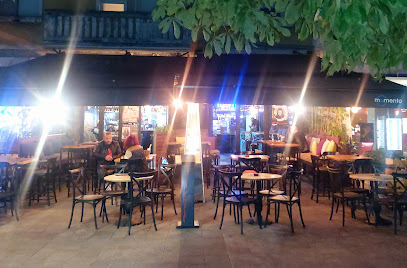
Ресторант “Хари”
Experience the authentic taste of Bulgarian grill at Restaurant 'Hari' in Pleven, where flavor and hospitality come together in perfect harmony.
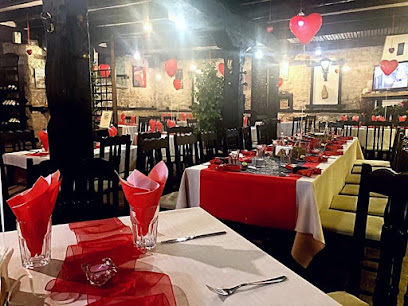
'Gavril' Bar & Grille
Experience the vibrant atmosphere and delicious grilled dishes at 'Gavril' Bar & Grille in Pleven, Bulgaria, a perfect stop for hungry travelers.
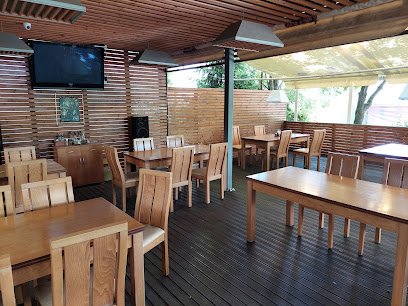
Снек-Бар “Хитър Петър”
Experience the vibrant atmosphere and delicious menu at Snack Bar 'Hitter Petar' in Pleven, the perfect spot for a relaxing meal and drinks.
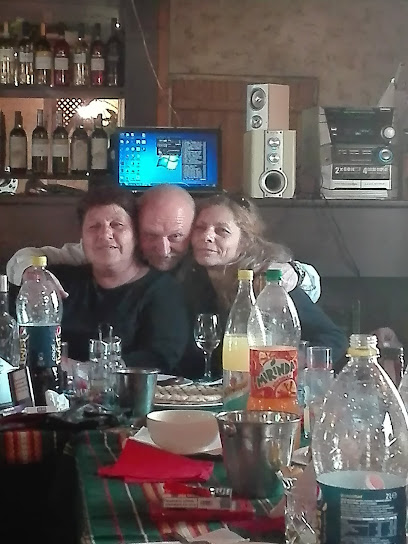
Sky Lounge
Experience the vibrant nightlife of Pleven at Sky Lounge, offering stunning views, exquisite cocktails, and a relaxing shisha atmosphere.
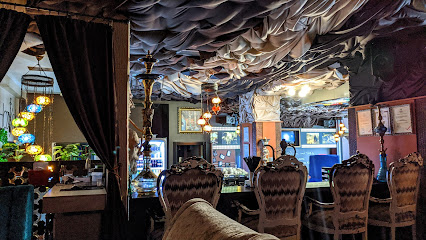
Flame bar
Discover the lively atmosphere of Flame Bar, a premier night club and café in Pleven, perfect for enjoying drinks, dancing, and unforgettable nights.
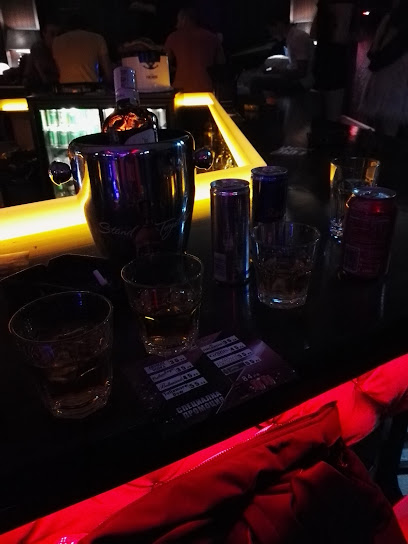
Secret-bar&games
Experience the vibrant ambiance of Secret Bar & Games in Pleven, where hookah, games, and delightful drinks come together for a memorable night out.
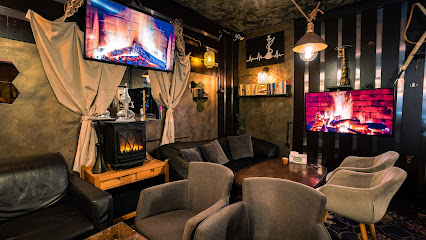
Stereo Club
Discover the lively Stereo Club in Pleven, where vibrant nightlife meets an electrifying atmosphere for an unforgettable night out.
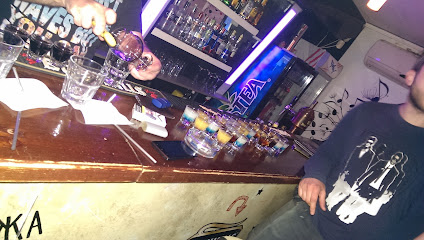
Dirty Bar
Experience the vibrant nightlife at Dirty Bar in Pleven, where great drinks and a lively atmosphere await every visitor.
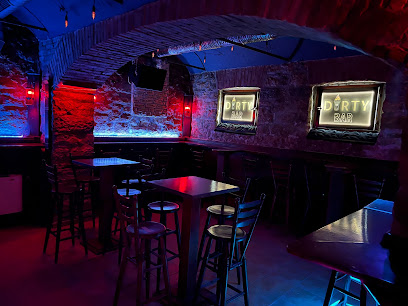
Gloria
Discover the charm of Pleven at Gloria, a delightful bar and cafeteria offering a cozy atmosphere and an array of beverages and snacks.
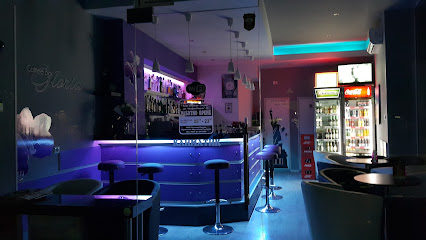
Веселата Къща
Discover the vibrant atmosphere of Веселата Къща, a pub in Pleven offering traditional Bulgarian cuisine and a welcoming community vibe.
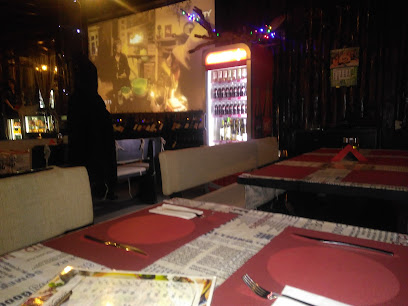
Салкъм Бар
Experience the vibrant nightlife at Салкъм Бар in Pleven - a perfect spot for drinks, music, and socializing with friends and locals.
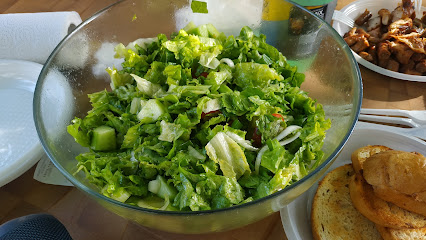
Nazdrave
Experience the lively nightlife of Pleven at Nazdrave, where great drinks and friendly vibes come together in a charming atmosphere.
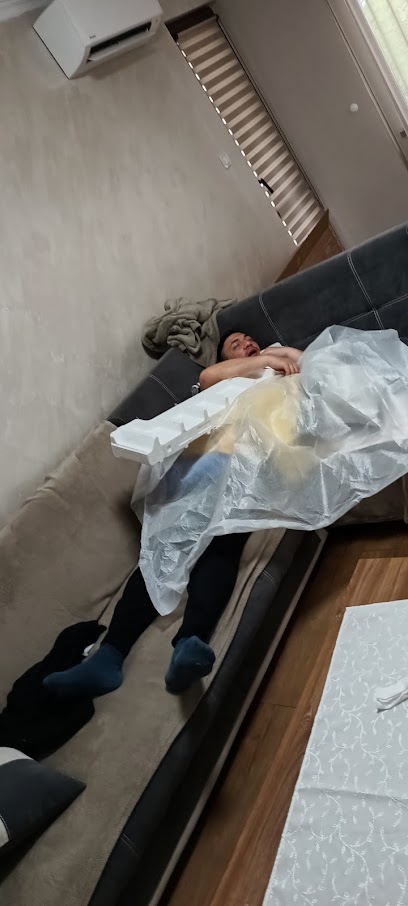
Local Phrases
-
- HelloЗдравей
[Zdravey] - GoodbyeДовиждане
[Dovizhdane] - YesДа
[Da] - NoНе
[Ne] - Please/You're welcomeМоля
[Molya] - Thank youБлагодаря
[Blagodarya] - Excuse me/SorryИзвинете
[Izvinete] - How are you?Как си?
[Kak si?] - Fine. And you?Добре. А ти?
[Dobre. A ti?] - Do you speak English?Говориш ли английски?
[Govorish li angliyski?] - I don't understandНе разбирам
[Ne razbiram]
- HelloЗдравей
-
- I'd like to see the menu, pleaseБих искал да видя менюто, моля
[Bih iskal da vidya menuto, molya] - I don't eat meatНе ям месо
[Ne yam meso] - Cheers!На здраве!
[Na zdrave!] - I would like to pay, pleaseБих искал да платя, моля
[Bih iskal da platya, molya]
- I'd like to see the menu, pleaseБих искал да видя менюто, моля
-
- Help!Помощ!
[Pomosht!] - Go away!Махай се!
[Mahay se!] - Call the Police!Обадете полицията!
[Obadete politsiyata!] - Call a doctor!Обадете доктор!
[Obadete doktor!] - I'm lostЗагубих се
[Zagubi se] - I'm illБолен съм
[Bolen sam]
- Help!Помощ!
-
- I'd like to buy...Бих искал да купя...
[Bih iskal da kupya...] - I'm just lookingПросто гледам
[Prosto gledam] - How much is it?Колко струва?
[Kolko struva?] - That's too expensiveТова е твърде скъпо
[Tova e tvurde skapо] - Can you lower the price?Можете ли да намалите цената?
[Mozhete li da namalite tsenata?]
- I'd like to buy...Бих искал да купя...
-
- What time is it?Колко е часът?
[Kolko e chasat?] - It's one o'clockЕдин час е
[Edin chas e] - Half past (10)Половина на (10)
[Polovina na (10)] - MorningСутрин
[Sutrin] - AfternoonСледобед
[Sledobed] - EveningВечер
[Vecher] - YesterdayВчера
[Vchera] - TodayДнес
[Dnes] - TomorrowУтре
[Utre] - 1Едно
[Edno] - 2Две
[Dve] - 3Три
[Tri] - 4Четири
[Chetiri] - 5Пет
[Pet] - 6Шест
[Shest] - 7Седем
[Sedem] - 8Осем
[Osem] - 9Девет
[Devet] - 10Десет
[Deset]
- What time is it?Колко е часът?
-
- Where's a/the...?Къде е/има...
[Kade e/ima...] - What's the address?Какъв е адресът?
[Kakav e adresat?] - Can you show me (on the map)?Може ли да ми покажете (на картата)?
[Moje li da mi pokazhete (na kartata)?] - When's the next (bus)?Кога е следващият (автобус)?
[Koga e sledvashtiyat (avtobus)?] - A ticket (to ....)Билет (до ...)
[Bilet (do ...)]
- Where's a/the...?Къде е/има...
History of Pleven
-
The history of Pleven dates back to ancient times when it was a Thracian settlement known as Storgosia. Archaeological evidence suggests that the area was inhabited as early as the 5th century BC. The Thracians were known for their warrior culture and sophisticated metalwork, leaving behind artifacts that offer a glimpse into their way of life.
-
During the Roman era, Pleven became an important military and trade center. The Romans fortified the settlement and built significant infrastructure, including roads and bridges. The remains of Roman fortifications and buildings can still be seen in and around the city, serving as a testament to its historical importance.
-
In the medieval period, Pleven was a fortified town within the First Bulgarian Empire. The town played a crucial role in the defense against Byzantine and later Ottoman invasions. The medieval fortress in Pleven, although largely in ruins today, was a significant military stronghold that witnessed numerous battles and sieges.
-
Pleven fell under Ottoman rule in the late 14th century and remained part of the Ottoman Empire for nearly five centuries. During this period, the town developed as an important administrative and economic center. The Ottoman influence is evident in some of the architectural styles that can still be observed in Pleven.
-
The Siege of Pleven, also known as the Plevna Siege, was a critical battle during the Russo-Turkish War of 1877-1878. The siege lasted for five months and ended with the capture of the city by Russian and Romanian forces. This event was pivotal in the liberation of Bulgaria from Ottoman rule. The Pleven Panorama, a museum dedicated to the siege, offers a detailed and immersive experience of this historical event.
-
After the liberation, Pleven underwent significant changes and modernization. The city became a major cultural and industrial center in Bulgaria. Many of the buildings from this period reflect European architectural styles, illustrating the city's transition into a modern urban center.
-
Pleven is home to numerous cultural landmarks that reflect its rich history. The Pleven Epopee 1877, a large-scale panorama painting, and the Pleven Regional Historical Museum offer insights into the city's past. The Kaylaka Park, with its natural beauty and historical ruins, is another significant cultural site that attracts both locals and tourists.
Pleven Essentials
-
Pleven is well-connected by various modes of transportation. The nearest major airport is Sofia Airport, located approximately 170 kilometers southwest of Pleven. From Sofia, you can take a direct train, bus, or rent a car to reach Pleven. The train journey takes around 2.5 to 3 hours, while the bus ride may take slightly longer. There are also regular bus services from other major Bulgarian cities, such as Varna and Plovdiv, to Pleven.
-
Pleven has a reliable public transportation system, including buses and trolleybuses. Tickets can be purchased from kiosks or directly from the driver. Taxis are also widely available and are relatively inexpensive. For a more flexible option, consider renting a car, especially if you plan to explore the surrounding areas. Pleven is a walkable city, and many of its attractions are within walking distance of each other.
-
The official currency in Bulgaria is the Bulgarian Lev (BGN). Credit and debit cards are widely accepted in most hotels, restaurants, and shops in Pleven. However, it is advisable to carry some cash for smaller establishments and public transport. ATMs are plentiful throughout the city, and currency exchange offices are also available for converting foreign currency.
-
Pleven is generally a safe city for tourists. As with any destination, it is wise to take standard precautions. Avoid walking alone at night in poorly lit or unfamiliar areas. Keep an eye on your personal belongings, especially in crowded places like markets and public transport. There are no specific neighborhoods with high crime rates targeting tourists, but it is always best to stay vigilant.
-
In case of emergency, dial 112 for immediate assistance, which will connect you to police, fire, or medical services. Pleven has several medical facilities, including Pleven University Hospital, which offers emergency care. It is recommended to have travel insurance that covers medical emergencies. Pharmacies are available throughout the city for minor health issues.
-
Fashion: Do dress modestly, especially when visiting religious sites. Avoid overly revealing clothing. Religion: Do show respect for local customs and traditions. When visiting churches, cover your head and dress conservatively. Public Transport: Do respect elderly passengers by giving up your seat. Don’t eat or drink on public transport. Greetings: Do greet people with a firm handshake. A nod or bow of the head is also a sign of respect. Eating & Drinking: Do try local dishes and accept food offerings graciously. Don’t refuse hospitality, as it may be considered impolite.
-
To experience Pleven like a local, visit the local markets such as the Central Market Hall, where you can buy fresh produce and traditional Bulgarian goods. Engage with locals; they are often friendly and willing to share stories about the city's history and culture. Don’t miss visiting the Pleven Panorama, a unique museum that provides an immersive experience of the Russo-Turkish War. For a leisurely activity, take a stroll through the Kaylaka Park, a favorite spot among locals for its natural beauty and recreational facilities.
Trending Landmark in Pleven
-
Monument of Freedom, Saint Nicholas peak
-
Pleven Panorama
-
Skobelev Park
-
Monument of Mother Bulgaria
-
Pleven Water Cascades and Fountains
-
Kaylaka Park
-
Revue - Coffee and Food
-
Regional Historical Museum Pleven
-
Monuments Park
-
Pinch of love
-
Pleven Zoo
-
Hotel Villa Kaylaka
-
МБАЛ Сърце и Мозък
-
House Museum Tsar Liberator Alexander II
-
Hotel Orbita Palace
Nearby Cities to Pleven
-
Things To Do in Gabrovo
-
Things To Do in Ruse
-
Things To Do in Craiova
-
Things To Do in Stara Zagora
-
Things To Do in Pitesti
-
Things To Do in Bucharest
-
Things To Do in Haskovo
-
Things To Do in Râmnicu Vâlcea
-
Things To Do in Shumen
-
Things To Do in Drobeta-Turnu Severin
-
Things To Do in Târgu Jiu
-
Things To Do in Niš
-
Things To Do in Burgas
-
Things To Do in Brasov
-
Things To Do in Kamenica










